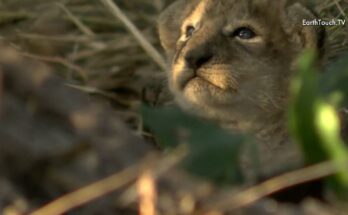
In lion societies, the behavior in which incoming male lions kill young cubs is known as infanticide, and it plays a significant role in the structure and survival strategies of the species. Although it may seem cruel from a human perspective, this behavior is rooted in evolutionary biology and is common among several large mammals.
Lion prides are typically composed of related females, their offspring, and a small coalition of males that protect and mate with the females. Male lions do not stay dominant for long—usually only two to three years—before another coalition challenges and replaces them. Because of this limited time, new males prioritize passing on their own genes as quickly as possible.
When a new coalition takes over a pride, the females may have cubs fathered by the previous males. These cubs prevent the mothers from becoming fertile again because lionesses do not come into estrus while nursing. By eliminating the cubs, the new males effectively reset the reproductive cycle. Within a few weeks, the females return to estrus and can mate with the newcomers, giving the males a chance to produce their own offspring before they themselves are displaced.
For the females, preserving their lineage is also important. Although they often attempt to defend their cubs, they usually cannot overcome a coalition of strong adult males. As a result, the mothers quickly adapt to the new pride structure, as resisting too strongly could put them at risk and further threaten the long-term stability of the pride.
While infanticide feels harsh, it serves an evolutionary function: it ensures that dominant males can reproduce within their brief tenure and that the pride’s genetic line continues. Understanding this behavior offers insight into the complex and sometimes difficult strategies that shape animal societies in the wild.



I wish they would never ever kill the cubs